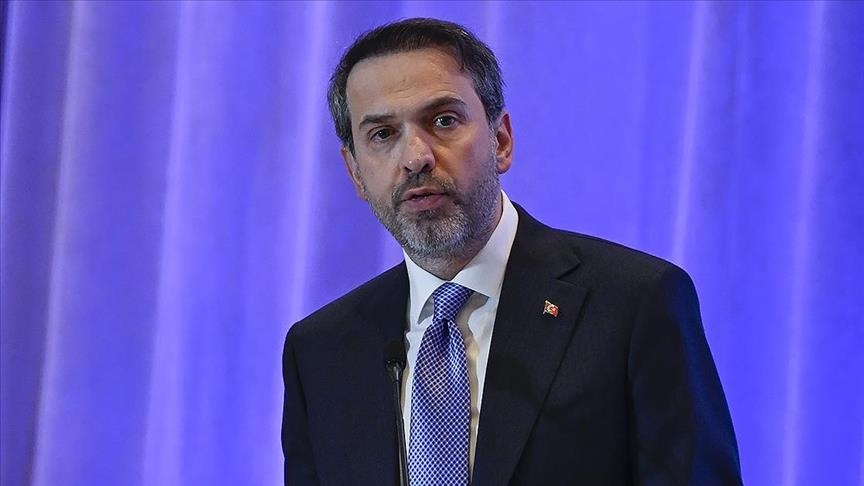ISTANBUL
Türkiye on Friday proposed forming a technical-level working group to integrate electricity infrastructure of Shanghai Cooperation Organization (SCO) member countries into a “mega grid.”
Attending the fourth SCO Energy Ministers meeting via videoconference, Turkish Energy and Natural Resources Minister Alparslan Bayraktar underlined that the energy transition can only be achieved through fundamental changes requiring significant investment, along with regional and global cooperation.
Türkiye is developing a unique energy transition strategy to achieve its decarbonization goals by 2053, Bayraktar said.
Highlighting the importance of infrastructure for the energy sector, Bayraktar said, “Without transmission, there is no successful energy transition.”
Noting Türkiye’s plans to expand its power grid to allow for 60 more gigawatts of renewable energy resources like solar and wind over the next 12 years, he said the country would achieve this without compromising energy security.
“There is a lot more potential and synergies to create if we expand these intergovernmental cooperations for joint infrastructure projects,” he said, added that all SCO countries could “work together to establish a well-integrated mega grid and also power markets coupling and extensive EV (electric vehicle) charging networks.”
Pointing to Türkiye’s ongoing cooperation with its neighbor Georgia, Azerbaijan, Iran, Bulgaria, and Greece to increase their capacity for interconnection, Bayraktar said:
“I propose establishing a technical-level working group to work on this mega grid under the umbrella of SCO. Our idea should be creating regionally coupled markets that effectively utilize resources across regions, delivering electricity effectively between countries.”
He added that Türkiye was willing to host the working group’s first meeting in the fall or next spring.
Bayraktar also pointed to the potential among SCO members to further advance energy transition technologies and address more markets globally via international cooperation.
“Our countries are blessed with abundant resources, including natural resources like oil, gas, minerals, and human resources and institutions like universities and research centers.
“By working together, we can leverage these resources more effectively and ensure that benefits are widely shared,” he said.

